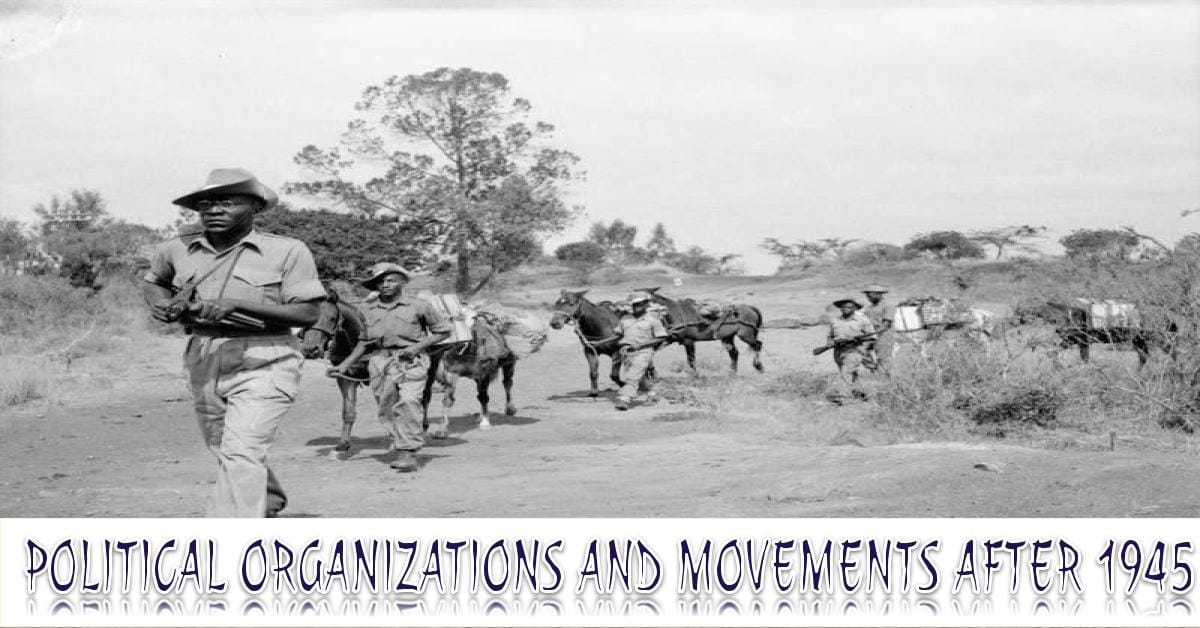🇰🇪 Political Organizations and Movements in Kenya After 1945
✨ Factors That Hastened Political Development
📚 Western Education
The acquisition of western education by many Africans enabled them to articulate grievances and understand global political developments.
🎖️ Return of Ex-Servicemen
WWII veterans exposed white supremacy myths and were embittered by lack of colonial government rewards.
🏛️ UK Labour Government
The 1946 change to Labour Party in Britain brought new attitudes toward decolonization that Kenyans exploited.
🇮🇳 Asian Independence
1947 independence of India/Pakistan inspired Kenyan confidence to demand self-rule.
🌍 Pan-Africanism
The 1945 Manchester Conference fueled demands for political independence across Africa.
🕊️ UNO Pressure
The United Nations pressured European powers to decolonize, aiding Kenya’s cause.
⚡ Cold War Dynamics
US/Soviet superpower rivalry saw America push for decolonization to secure new markets.
📜 Atlantic Charter
The 1941 agreement demanded self-determination for all subject peoples post-WWII.
💸 Post-War Costs
European taxpayers resisted funding colonies after WWII’s financial burdens.
🎯 Characteristics of Post-1945 Political Parties
- ✓ National Outlook: Multi-ethnic membership
- ✓ Independence Focus: Primary objective
- ✓ Educated Leadership: Elite-dominated
- ✓ Mass Membership: Large followings
- ✓ Tax Reforms: Demanded fair African taxation
- ✓ Workers’ Rights: Better conditions demanded
- ✓ Land Reclamation: Return of alienated lands
Kenyan political evolution post-1945 was shaped by global currents and local aspirations

